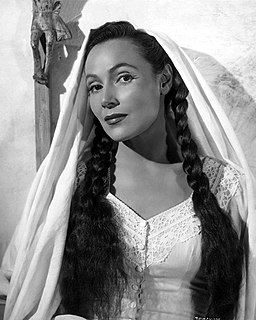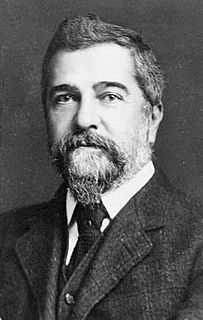A Quote by Brian D. McLaren
One of the things that's happening to a lot of us is that there's this vision of the beauty of God that transports us and that takes us to a new depth and a new height. It's one of those things about beauty. You can't capture it in a word or a formula. When you get to that humble place where the beauty of God has overwhelmed you, I think it changes everything. You can say the same creed that you said before, but now it's not a creed that grasps God in the fist of the words, but it's a creed that points up to a beauty that's beyond anybody's grasp.
Related Quotes
It is not expensive to be beautiful. It takes only a little effort to be presentable and beautiful. But it takes some effort. And unfortunately people think of beauty as luxury, beauty as frivolity, ... or extravagance. Beauty is a discipline, beauty is art, is harmony, in the ideological sense and in the theological sense, beauty is God and love made real. And the ultimate reach in this world is beauty.
We all share beauty. It strikes us indiscriminately. There is no end to the beauty for the person who is aware. Even the cracks between the sidewalk contain geometric patterns of amazing beauty. If we take pictures of them and blow up the photographs, we realize we walk on beauty every day, even when things seem ugly around us.
I think our mental picture of God is the most important fact about our life. All other things being equal, the beauty of our life won't outrun the beauty of our vision of God. Unfortunately, the God that many Christians envision is not completely Christ-like, but is rather influenced by the violent depictions of God in the Old Testament.
Whether it's a pebble in a riverbed or a soaring mountain peak, I see everything in the world as the handiwork of the Lord. When I paint, I try to represent the beauty of God's creation in my art. Many modern painters see the world as a jumble of random lines and shapes with no divine beauty or order, and their works reflect their viewpoint. Because I see God's peacefulness, serenity, and contentment, I work to capture those feelings on the canvas. My vision of God defines my vision of the world.
The experience of beauty is in the eye of the beholder, as they say. The artist's relation to the object of beauty, how the art makes that happen, is a whole other subject. Beauty is an event. Beauty is something that happens. There is no such thing as a beautiful object or a beautiful woman. These things do not come near it - the experience of beauty, the event of beauty. The anxiety about it is what makes it such a central concern of culture and makes us so interested in it.
Beauty is a key to the mystery and a call to transcendence. It is an invitation to savor life and to dream of the future. That is why the beauty of created things can never fully satisfy. It stirs that hidden nostalgia for God which a lover of beauty like Saint Augustine could express in incomparable terms: 'Late have I loved you, beauty so old and so new: late have I loved you!'.
God who is goodness and truth is also beauty. It is this innate human and divine longing, found in the company of goodness and truth, that is able to recognize and leap up at beauty and rejoice and know that all is beautiful, that there is not one speck of beauty under the sun that does not mirror back the beauty of God.
Take care of your inner beauty, your spiritual beauty, and that will reflect in your face. We have the face we created over the years. Every bad deed, every bad fault will show on your face. God can give us beauty and genes can give us our features, but whether that beauty remains or changes is determined by our thoughts and deeds.
And there is something profoundly humbling about knowing God. I’m not talking about the trinket God or the genie-in-a-lamp God. I mean the God who invented the tree in my front yard, the beauty of my sweetheart, the taste of a blueberry, the violence of a river at flood. There are a lot of religious trends that would have us controlling God, telling us that if we do this that and the other, God will jump through our hoops like a monkey. But this other God, this real God, is awesome and strong, all-encompassing and passionate, and for reasons I will never understand, he wants to father us.
Poltinus the Platonist proves by means of the blossoms and leaves that from the Supreme God, whose beauty is invisible and ineffable, Providence reaches down to the things of earth here below. He points out that these frail and mortal objects could not be endowed with a beauty so immaculate and so exquisitely wrought, did they not issue from the Divinity which endlessly prevades with its invisible and unchanging beauty all things.


































